GST, Taxes & Levies
Regulations that govern business income can sometimes be difficult to understand, however, it is essential that you fulfil your tax obligations, as required by law.
A basic understanding of New Zealand tax law is important when organising any event on a commercial scale. There are many pieces of the puzzle to consider so it is a good idea to consult with a tax and financial advisor to ensure you haven’t missed any of your tax obligations.
Even if your event is less commercially focused, it still pays to understand what constitutes a taxable activity so you can be sure that you are operating legally.
Tips:
GST: Registration
- You are required to register for GST if your taxable activities are likely to generate revenue of $60,000 or more per annum or you carry out taxable activities and add GST to the price of the goods or services you sell.
- Taxable activities in regard to GST are defined by the Inland Revenue Department (IRD) as ‘a continuous or regular activity undertaken by any person that supplies or intends to supply goods or services for money or other reward. This includes activities that do not make a profit’.
- You can choose to become GST registered even if your revenue is not likely to be more than $60,000 per annum, and your obligations will be the same in this case.
- Learn more about GST registration and tax obligations: Registering for GST (ird.govt.nz).
GST: Charging, claiming, filing and paying
- If you are registered for GST, you will need to charge GST on any goods or services you provide, such as:
- ticket sales
- merchandise
- food and beverage
- sponsorship and advertising revenue.
- You can claim GST on any expenses incurred through the execution of your taxable activities. For event organisers, this might include:
- venue hire
- equipment rental
- ticketing provider fees
- professional services such as photographers and security
- food and beverage stock
- promotional expenses.
- You will need to keep records of the GST collected and claimed, and file returns either monthly, two-monthly or six-monthly, depending on your revenue levels and other factors. Learn more about GST claiming and filing: Which GST accounting basis and filing frequency should I use? (ird.govt.nz).
- You must then pay the balance of your GST charges and claims to the IRD at each filing date.
- If you paid more GST than you collected in any filing period, you are entitled to a GST refund.
Income tax
- You are required to pay income tax on any profits earned through your taxable activities.
- It is essential to keep accurate records of all income and expenses to calculate your taxable income correctly. These records need to be kept for at least seven years.
- Learn more about income tax obligations: Income tax (ird.govt.nz).
PAYE, ACC levies and KiwiSaver
- If you employ staff in the running of your event, you will need to register for PAYE (Pay As You Earn) as an employer and deduct tax from your employees’ wages, based on their individual tax codes.
- Your employees will need to complete an IRD tax code declaration when they start work.
- You may be required to make further deductions such as KiwiSaver, child support and student loan repayments.
- ACC levies are required to be paid on wages or salary paid to your employees as a percentage of earnings. Learn more about ACC levies: Understanding levies if you work or own a business (acc.co.nz).
- You are required to file employer returns, which provide information to the IRD about the income paid and deductions made for each employee. These are filed electronically and must be submitted on or before their due date. Learn more about employer returns: Deductions from salary and wages (ird.govt.nz).
- You may be required to make KiwiSaver employer contributions alongside the employee’s contributions. Learn more about your KiwiSaver obligations: KiwiSaver (business.govt.nz).
- You are required to keep records of all payroll transactions for at least seven years.
Contractors
- If you engage contractors or subcontractors to provide services, you need to ensure the relevant tax and employment laws are adhered to.
- Are contractors correctly classified as either employees or independent contractors for tax and employment purposes? Learn the difference between these two types of workers: Employee or contractor? (employment.govt.nz).
Local council fees and levies
- Depending on the scale of your event, you may be required to obtain permits from the local council and/or pay fees or levies based on the activities undertaken.
Useful Links:
- Inland Revenue Te Tari Taake
- ACC New Zealand | Understanding levies if you work or own a business
- Business.govt.nz | Business help & advice
- Employment New Zealand | Employment services, tools and resources
Have you considered?
- Should you engage a tax consultant or financial advisor for guidance?
- What is the scale of your event and what does that mean for you in terms of tax obligations?
- Would GST registration be beneficial for your event even if it is not forecasted to turn over more than the $60,000 annual threshold?

